17 Mar2020
By Jerrica Thurman

The AACTE 2020 Annual Meeting Opening keynote speaker Robin DiAngelo, associate professor of education at the University of Washington, is widely recognized for her research in critical discourse analysis and whiteness studies. In her address, she explored how to implement strategic, intentional anti-racist actions to interrupt the system of racism in education. Her message aligns with AACTE’s core value of diversity, equity, and inclusion an integral part of AACTE’s strategic plan for 2020-23.
“The status quo of this society is racism; it is not an aberration, it’s the norm. All of our institutions effectively and efficiently reproduce racial inequality and schools are the bellies of the beast,” said DiAngelo. She noted that the concept examining the dominant culture is consistently left off the table in the conversation when discussing race issues. These discussions tend to focus on learning about other racial groups.
During her talk, she emphasized the need to decenter “whiteness” by naming it and exposing it, explaining that there is a white worldview, a white frame of reference that allowed her to move through the world from a white experience. DiAngelo shared, “Being white, I was not raised to see myself in racial terms” She reasoned that as a white person, “when we talk about race it’s about their race not mine.” She acknowledged the complexities of racism and the inability to understand every nuance. “But it’s on me to get that information, not on people of color to hand it to us.”
16 Mar2020
By AACTE
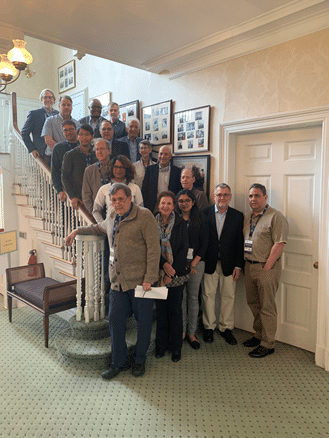 An excerpt from this article appeared in District Administration on March 11.
An excerpt from this article appeared in District Administration on March 11.
Today, we live in a society where truth is decaying, falsehoods are readily shared across social media, and hatred and discrimination are on the rise. According to the Southern Poverty Law Center the number of hate groups operating in the United States hit a record high in 2018. Hate speech creates an environment in which biases and discrimination thrive and can have a detrimental impact on a school’s culture and climate. Teaching and learning about the roots of hate are important elements in fostering an inclusive classroom environment.
Teachers play an essential role in creating a more humane and tolerant world. They are stewards of culture and are in a position to protect history, promote facts and prevent inhumanity. However, to provide students with the most effective instruction, educators must have the tools to understand the nature of hate crimes and how they impact the culture and climate of schools where they teach. Additionally, they must know how to address issues of bias and discrimination in the classroom.
04 Mar2020
By Dustin Wunderlich
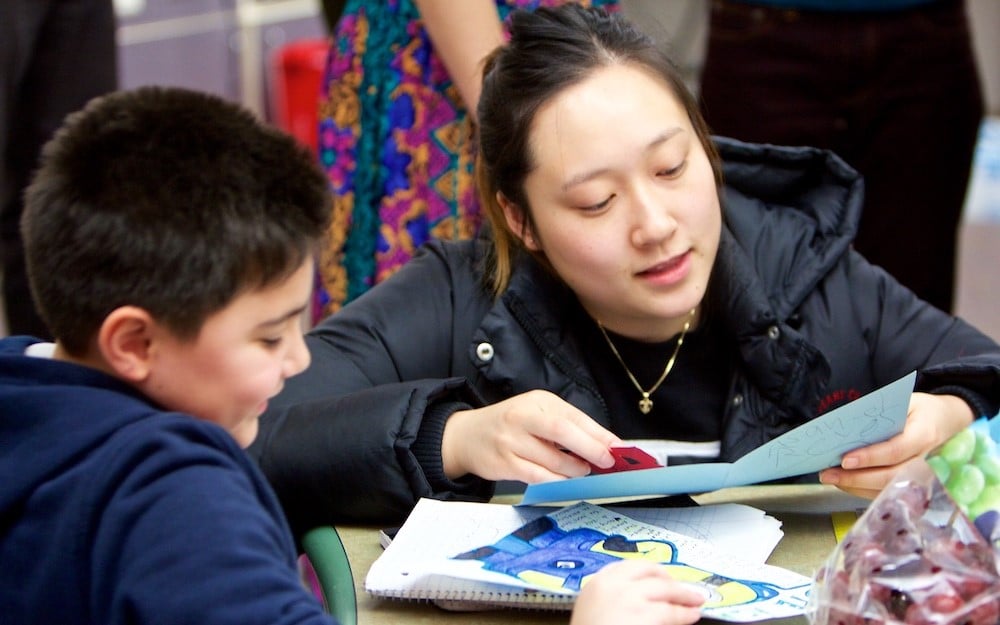
This article originally appeared on the University of Washington College of Education website and is reprinted with permission.
Back in 2017, the University of Washington’s Elementary Teacher Education Program (ELTEP) enrolled its first cohort of teacher candidates in which more than half were people of color and more than half spoke a language in addition to English.
While the diversity of the cohort was welcome — particularly in a state where 89 percent of teachers are white but students of color make up nearly 50 percent of public school enrollment — it also meant UW teacher educators needed to reassess their program.
“When we admitted our first group of very diverse students, I went to the faculty and said ‘We’ve got a gift’,” said Teddi Beam-Conroy, director of the UW’s Elementary Teacher Education Program. “Most efforts [to diversify the teaching workforce] concentrate on recruiting students, and they’re here. So now we have to talk about how we’re going to change to meet their needs. What do we need to do in order to sustain and learn from the students we have with us?”
29 Feb2020
AACTE Conference Addresses How to Disrupt Inequities in Education
By AACTE
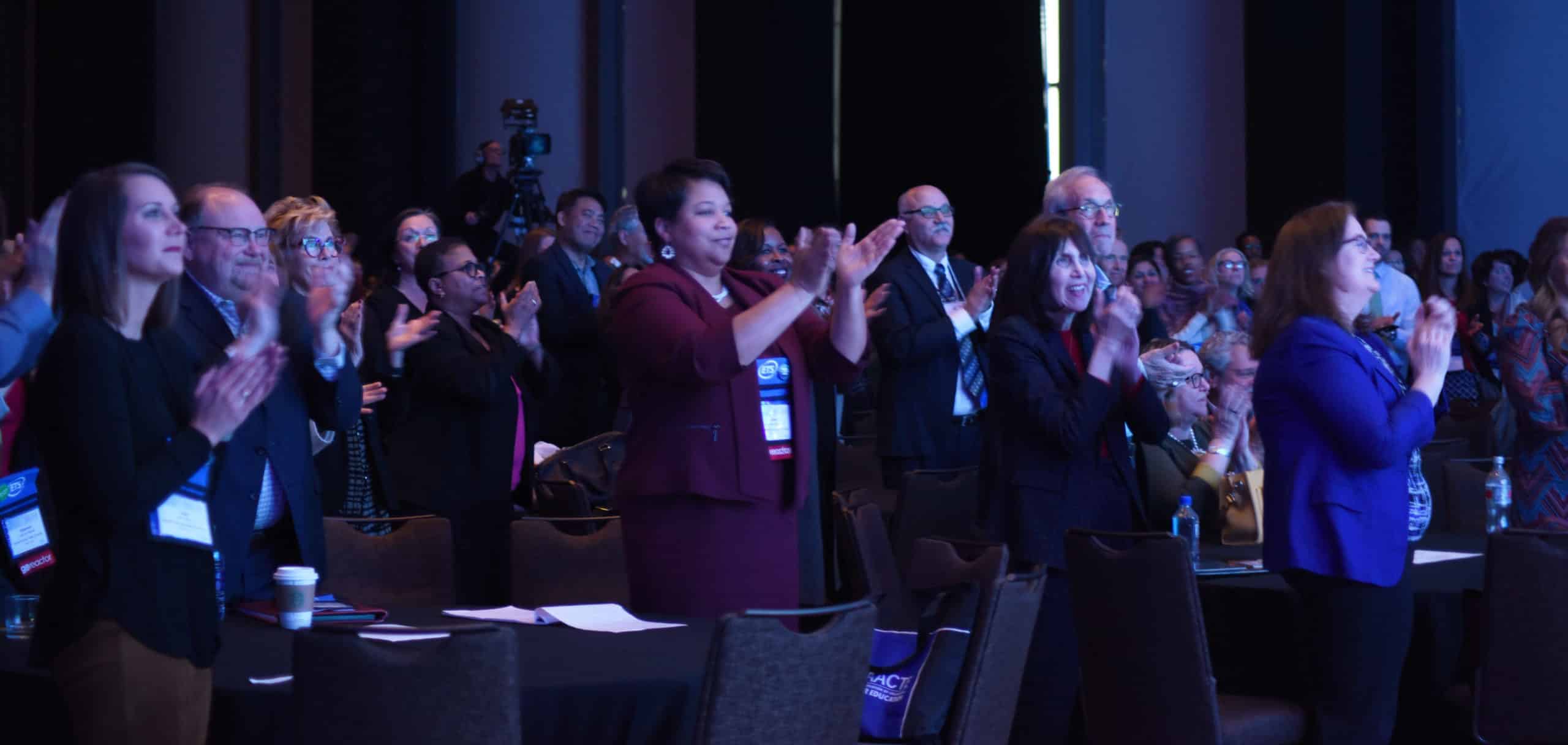
Nearly 2,000 teacher educators kicked off the 72nd Annual Meeting of the American Association of Colleges for Teacher Education (AACTE) at the Atlanta Marriott Marquis yesterday. The conference, themed “Disrupting Inequities: Educating for Change,” is being held February 28 – March 1. Attendees include deans, faculty, students, and administrators from undergraduate and graduate education programs, community colleges, and K-12 schools, as well as representatives from state and federal agencies, nonprofit organizations, and foundations.
America’s educator preparation community is keenly aware of and uniquely positioned to change the systemic challenges occurring in PK-16 environments that serve the nation’s most vulnerable populations—students of color, students with disabilities, students from immigrant families, students from low-income families, and LGBTQ students. Under its 2020 theme, the AACTE conference offers attendees hundreds of concurrent sessions that explore how to redefine the meaning of success for all students and encourage them to become active learners, productive citizens, critical thinkers, and leaders in their communities and across the globe.
26 Feb2020
By Kimberly White Smith

The American education system was not created to support the liberation of the powerless. Instead, it was designed to instill skills, habits, beliefs, and discipline that would allow for better control of the masses. The colonizers who became the architects of this country built a system that perpetuates the status of white-skinned privilege and wealth, while leaving those in the lower and middle classes burdened with the laborious task of building and supporting our nation’s economy and infrastructure.
Throughout the history of the United States, minoritized racial groups and those who live in poverty have suffered disparities in education through laws and policies that prohibited them from socioeconomic advancement, physical safety, and basic civil rights. The anti-literacy laws enacted before, during, and after the Civil War are just one example of how white-skinned privilege and power was used to perpetuate the oppression of enslaved Blacks and concretize a system that generated more wealth for those in power.
Our current education system continues to enable inequity through policies and practices that claim to be fair, colorblind, and neutral, but tend to privilege a small, elite portion of the U.S. population. We can no longer live by the adage “pull yourself up by your bootstraps,” when those who deserve a better education continue to be plagued by disparities. Addressing the persistent opportunity gap between our nation’s socioeconomic classes requires sustained engagement from leaders across every field of education.
21 Feb2020
By Leslie T. Fenwick
This article first appeared in Education Week on October 9, 2013 and is reprinted with permission from the author, AACTE Dean in Residence Leslie T. Fenwick.
There’s a troubling undercurrent to the national conversation about the black-white gap in student achievement. The (mostly) unspoken belief about black students is tied to broader perceptions about black people. So, let’s just say it: Some believe the gap is a function of weak family and community structures, male joblessness, drug use, and permissive cultural values—which they assert predominate in the black community.
Others believe that blacks constitute a community that is largely beyond intervention and that no amount of funding or special programs can fix what ails the perpetually troubled. An attendant assertion is that blacks who do achieve have outsmarted stereotype vulnerability and are outliers. Some say these blacks are exceptions and are successful because they embrace and actualize a white cultural-value system.
20 Feb2020
By Terrance McNeil
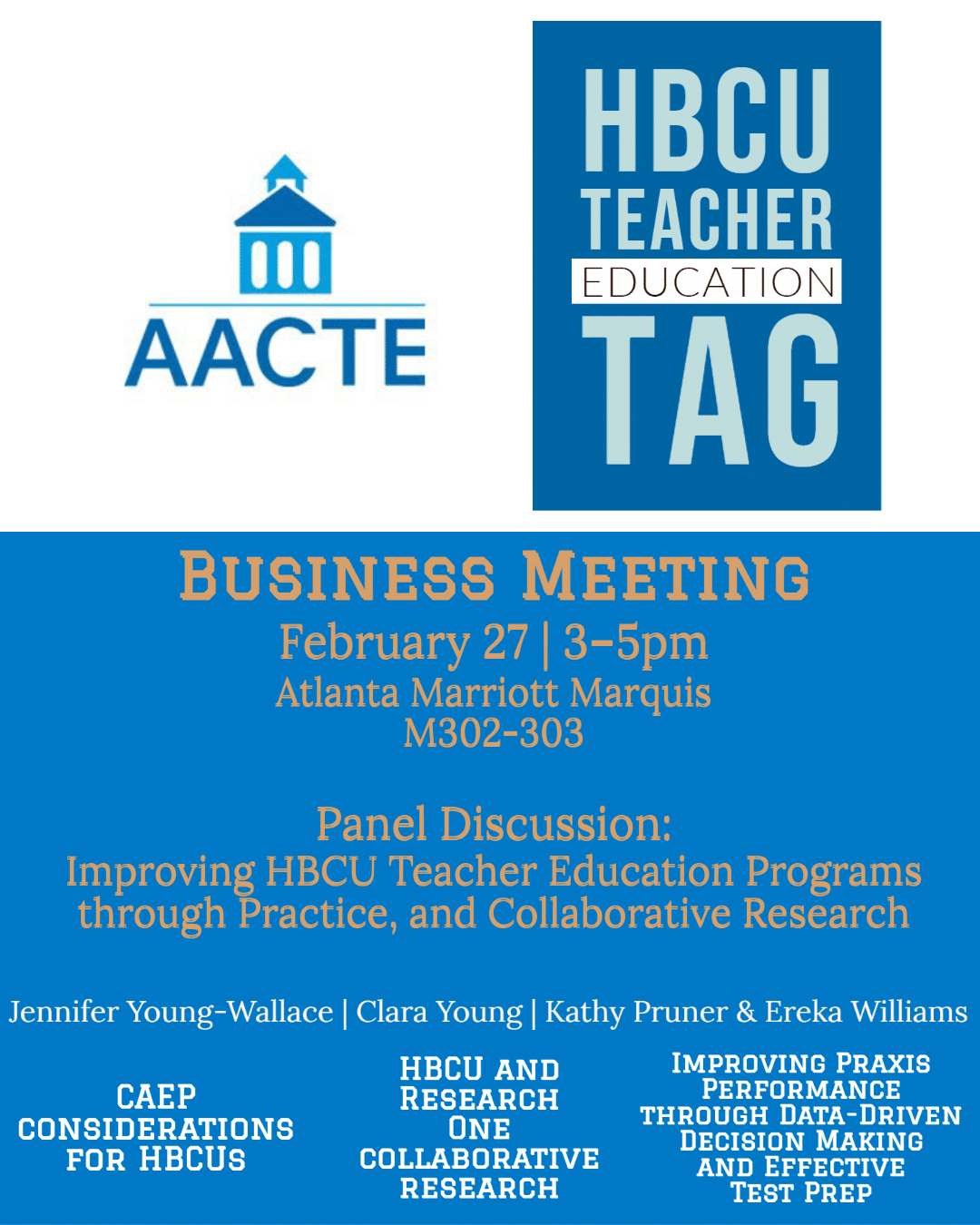 As the AACTE 72nd Annual Meeting theme suggests, decades of societal inequities extending into and from our P-16 institutional environments have left us hungry for change. Persistent achievement gap disparities and teacher shortages trouble us and often make us wonder how we will achieve the changes we seek. In terms of teacher diversity, one solution that many have found are the Educator Preparation programs at Historically Black Colleges and Universities (HBCUs). While making up only 3% of the nation’s higher education institutions, HBCUs provide over 50% of the nation’s African American teachers.
As the AACTE 72nd Annual Meeting theme suggests, decades of societal inequities extending into and from our P-16 institutional environments have left us hungry for change. Persistent achievement gap disparities and teacher shortages trouble us and often make us wonder how we will achieve the changes we seek. In terms of teacher diversity, one solution that many have found are the Educator Preparation programs at Historically Black Colleges and Universities (HBCUs). While making up only 3% of the nation’s higher education institutions, HBCUs provide over 50% of the nation’s African American teachers.
Several research projects and partnerships on the district and institutional level are demonstrating the capacity for HBCUs to bring their unique positionality to bear in the broader conversation on teacher diversity. A recent project involving Virginia Commonwealth University and Tennessee State University bears the potential to help the academic community understand more about creating a culturally responsive teacher workforce. Similarly, the “Call Me Mister” program and the “Florida Fund for Minority Teachers” historically have involved HBCUs in recruiting African American teachers. Through a variety of works, HBCUs continue to improve on their capacity to influence the teacher diversity conversation.
This year’s HBCU Teacher Education Topical Action Group (TAG) Business Meeting, which will take place February 27 at 3:00 p.m, will bring together AACTE members with over two dozen HBCU affiliations. Participants need not be HBCU graduates or currently working at an HBCU. The meeting will feature conversations on HBCU-led research agendas, proposed partnerships, CAEP accreditation, and improving preservice teacher performance on the Praxis. We are excited to have Ereka Williams of Fayetteville State University, Kathy Pruner, director of Professional Educator Programs at ETS, Jennifer Young-Wallace, Association of Teacher Educators board members, and Clara Young of Tennessee State University as contributors to this year’s business meeting.
13 Feb2020
By Michael Putman
In acknowledging the diversification of the P-12 population in U.S. classrooms, is your college or university prepared to develop candidates’ global competencies? AACTE’s Committee on Global Diversity is hosting a preconference workshop, “Internationalization of Teacher Education: Building a Strategic Framework for Developing Candidates’ Global Competencies,” which will assist in this process.
This preconference event will explore methods to infuse global competency into the curriculum and provide strategies for educator preparation programs to incorporate local and international opportunities—with a focus on developing successful partnerships to facilitate these opportunities.
Participants will actively engage with AACTE award recipients as well as influential experts in the field. Together they will hold meaningful discussions on best practices, innovative experiences and partnerships and, importantly, ways to develop authentic and meaningful programs that prepare mindful teacher candidates who advocate for and insist on multicultural education and diverse global perspectives within the classroom.
10 Feb2020
By Katrina Norfleet
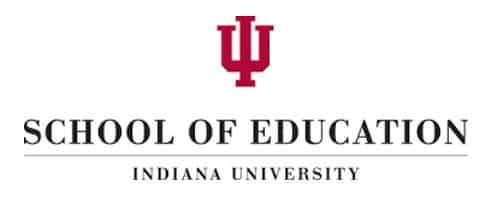 AACTE is delighted to announce Indiana University School of Education as the recipient of the 2020 AACTE Best Practice Award in Support of Global and International Perspectives for its K-16 Global Education Initiatives across Indiana program. Vesna Dimitrieska, coordinator, Global Education Initiatives at Indiana University School of Education and Hamilton Lugar School of Global and International Studies, will be recognized formally with the award at the AACTE 72nd Annual Meeting, February 28 – March 1, in Atlanta, GA.
AACTE is delighted to announce Indiana University School of Education as the recipient of the 2020 AACTE Best Practice Award in Support of Global and International Perspectives for its K-16 Global Education Initiatives across Indiana program. Vesna Dimitrieska, coordinator, Global Education Initiatives at Indiana University School of Education and Hamilton Lugar School of Global and International Studies, will be recognized formally with the award at the AACTE 72nd Annual Meeting, February 28 – March 1, in Atlanta, GA.
The uniqueness of Indiana University’s program lies in its structure as a joint program between its School of Education and its Hamilton Lugar School (HLS) of Global and International Studies, working collaboratively to create globally competent teachers. Hosted at the School of Education, the program ensures graduates enter the workforce with deep global knowledge and “strong fluency in the regional cultures, languages, and perspectives shaping our world.” By combining the resources that are available from the two schools, the program is providing equitable access to urban, suburban, and rural parts of Indiana and initiating, maintaining, and expanding partnerships with educators in schools from 18 different counties across the state.
10 Feb2020
By Jerrica Thurman
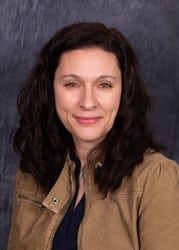 AACTE has chosen an article by Amy Rector-Aranda, Ph.D. of Texas A&M University, the recipient of the 2020 AACTE Outstanding Journal of Teacher Education Article Award. Her article, “Critically Compassionate Intellectualism in Teacher Education: The Contributions of Relational-Cultural Theory,” was published in the September/October 2019 issue of the journal and will be recognized formally with the award at the AACTE 72nd Annual Meeting, February 28 – March 1, in Atlanta, GA.
AACTE has chosen an article by Amy Rector-Aranda, Ph.D. of Texas A&M University, the recipient of the 2020 AACTE Outstanding Journal of Teacher Education Article Award. Her article, “Critically Compassionate Intellectualism in Teacher Education: The Contributions of Relational-Cultural Theory,” was published in the September/October 2019 issue of the journal and will be recognized formally with the award at the AACTE 72nd Annual Meeting, February 28 – March 1, in Atlanta, GA.
In the article, Rector‐Aranda explores how the critically compassionate intellectualism framework might translate as a framework for teacher education. Educational theorists Cammarota and Romero describe critically compassionate intellectualism (CCI) as a trilogy of critical pedagogy, authentic caring, and social‐justice oriented curriculum used to lift up previously disempowered Latinx youth. Because the compassion element in CCI is understudied in teacher education, yet crucial to the success of the framework as a whole, Rector‐Aranda applies the tents of Relational‐Cultural Theory (RCT) to enhance understandings of this component. Based in feminist theories of psychosocial and moral development, RCT expands the original framework to account for varied experiences of privilege and vulnerability when applying CCI to teacher education while retaining core emphases on relationships, empathy, and associate aspects of authentic caring. This study makes a conceptual contribution by offering an integrated framework for teacher education.
10 Feb2020
By Jerrica Thurman
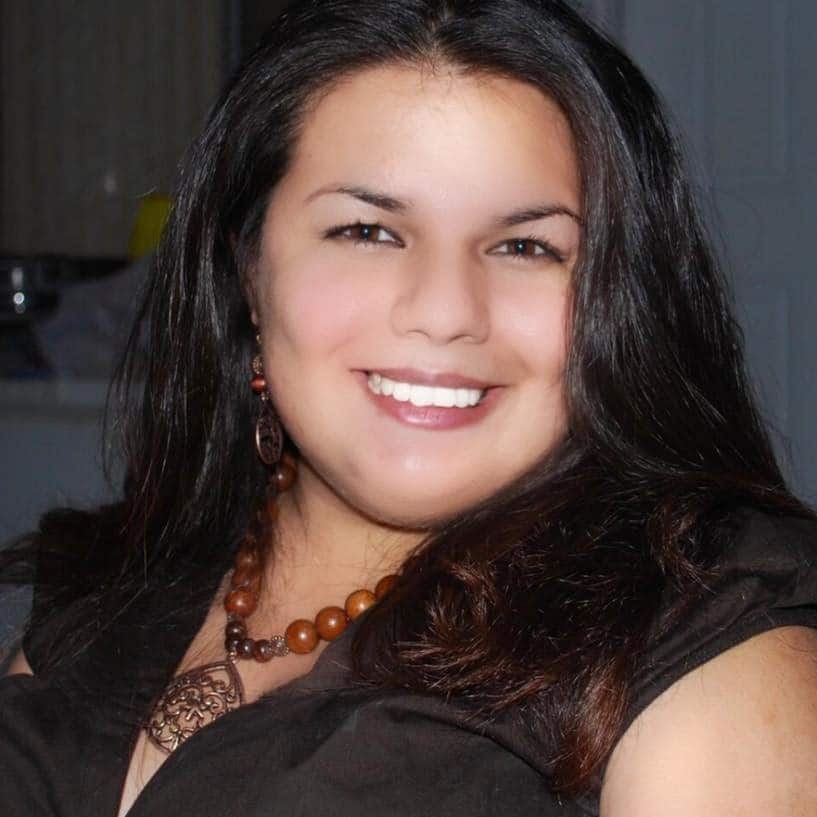 AACTE is delighted to announce Christina Restrepo Nazar, Ph.D. as the recipient of the 2020 AACTE Outstanding Dissertation Award for Youth as Teacher Educators: Supporting Preservice Teachers in the Developing Youth Centered, Equity-Oriented Science Teaching Practices. The author completed her dissertation for the Ph.D. at Michigan State University College of Education. She currently serves as assistant professor of K-12 science education in the Charter College of Education at California State University Los Angeles. She will be recognized formally with the award at the AACTE 72nd Annual Meeting, February 28 – March 1, in Atlanta, GA.
AACTE is delighted to announce Christina Restrepo Nazar, Ph.D. as the recipient of the 2020 AACTE Outstanding Dissertation Award for Youth as Teacher Educators: Supporting Preservice Teachers in the Developing Youth Centered, Equity-Oriented Science Teaching Practices. The author completed her dissertation for the Ph.D. at Michigan State University College of Education. She currently serves as assistant professor of K-12 science education in the Charter College of Education at California State University Los Angeles. She will be recognized formally with the award at the AACTE 72nd Annual Meeting, February 28 – March 1, in Atlanta, GA.
In her dissertation, Restrepo Nazar conducted three separate, but interrelated studies that examine the ways preservice teachers (PSTs) generatively developed youth-centered, equity-oriented pedagogical imaginaries in their methods courses and how they enacted these practice(s) in their field experiences. The purpose of this dissertation is to understand how and in what ways a science methods course can support PSTs in the critical uptake of youth (and community) knowledge(s) and practice(s) and how classroom communities in the field can shift/shape these enactments. In this work, Restrepo Nazar foregrounds youth counternarratives of the culture of power in science as a critical part of learning to teach science for PSTs—a study that has never been done before.
10 Feb2020
By Katrina Norfleet
 AACTE is delighted to announce Manhattanville College’s School of Education (SOE) in Purchase, N.Y. as the recipient of the 2020 AACTE Best Practice Award in Support of Multicultural Education and Diversity for its Changing Suburbs Institute® (CSI) program. Shelley Wepner, dean and professor, Manhattanville College of Education, will be recognized formally with the award at the AACTE 72nd Annual Meeting, February 28 – March 1, in Atlanta, GA.
AACTE is delighted to announce Manhattanville College’s School of Education (SOE) in Purchase, N.Y. as the recipient of the 2020 AACTE Best Practice Award in Support of Multicultural Education and Diversity for its Changing Suburbs Institute® (CSI) program. Shelley Wepner, dean and professor, Manhattanville College of Education, will be recognized formally with the award at the AACTE 72nd Annual Meeting, February 28 – March 1, in Atlanta, GA.
CSI is a grassroots, school-university-community collaborative that was established in recognition of the increasing diversity in suburban school districts and to ensure that practicing and prospective teachers are prepared to teach an increasingly diverse student population. Now in its fourteenth year, CSI focuses on four major areas: teacher leadership/development, collaboration, dissemination of information, and parent education. To address teacher leadership/development, CSI has established Professional Development Schools (PDS) in 16 schools across eight districts in Westchester County. Each PDS has a Leadership Team comprised of a faculty liaison, teachers, and school administrators.
06 Feb2020
By Amanda Morales
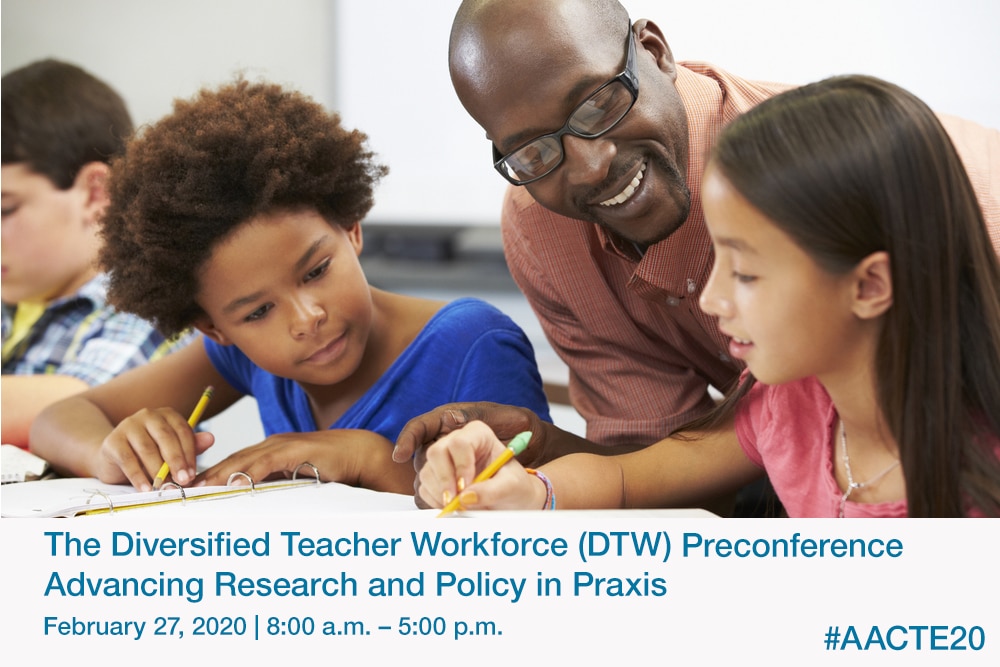 This year will mark the fourth year that ACCTE’s Diversified Teaching Workforce (DTW) Topical Action Group (TAG) will host a preconference Institute. This year’s Institute: Advancing Research and Policy in Praxis, will convene a group of national leaders from colleges and universities across the United States to spotlight and explore innovative efforts for addressing ethnoracial teacher diversity across the teacher development continuum. The preconference will take place February 27, 8:00 a.m. – 5:00 p.m.
This year will mark the fourth year that ACCTE’s Diversified Teaching Workforce (DTW) Topical Action Group (TAG) will host a preconference Institute. This year’s Institute: Advancing Research and Policy in Praxis, will convene a group of national leaders from colleges and universities across the United States to spotlight and explore innovative efforts for addressing ethnoracial teacher diversity across the teacher development continuum. The preconference will take place February 27, 8:00 a.m. – 5:00 p.m.
04 Feb2020
AACTE DEI Video: Building the Special Education Pipeline
By Katrina Norfleet
Ed Prep Matters features the “Revolutionizing Education” column to spotlight the many ways AACTE, member institutions, and partners are pioneering leading-edge research, models, strategies and programs that focus on the three core values outlined in the current AACTE strategic plan: Diversity, Equity, and Inclusion; Quality and impact; and Inquiry and Innovation.
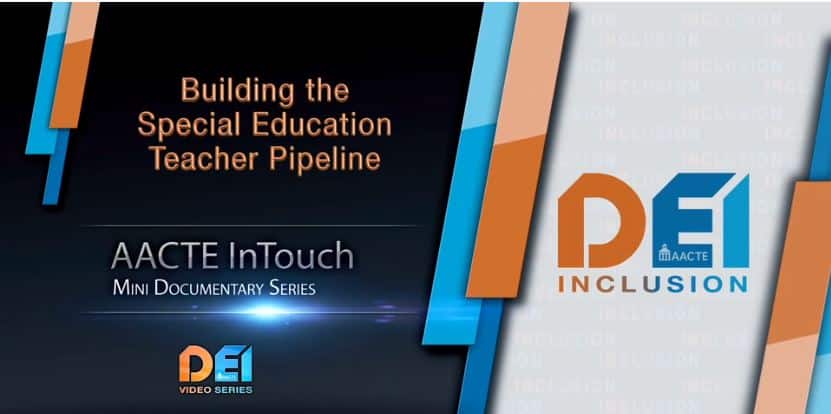
In the next segment of the AACTE Diversity, Equity and Inclusion video series, AACTE members address the critical shortage of special education teachers and how to ensure teachers can effectively serve students with disabilities. The video aligns with AACTE’s strategic priority to advocate for high-quality educator preparation and the inclusion of all students in equitable access and opportunity in PK-20 classrooms. In this DEI video, Building the Special Education Pipeline, leaders in educator preparation consider approaches to increasing the pool of highly qualified special education teachers.
30 Jan2020
A Look at Black Males and Education Using Critical Race Theory
By Kimberly White Smith and Quaylan Allen
Ed Prep Matters features the “Revolutionizing Education” column to spotlight the many ways AACTE, member institutions, and partners are pioneering leading-edge research, models, strategies and programs that focus on the three core values outlined in the current AACTE strategic plan: Diversity, Equity, and Inclusion; Quality and impact; and Inquiry and Innovation.
 Newly-elected AACTE Board member Kimberly A. White-Smith and her colleague Quaylan Allen published the following two studies in Urban Education and Equity & Excellence in Education in which they examine practices that influence the education of black males in the United States. The studies are summarized in the abstracts below with links to the full articles.
Newly-elected AACTE Board member Kimberly A. White-Smith and her colleague Quaylan Allen published the following two studies in Urban Education and Equity & Excellence in Education in which they examine practices that influence the education of black males in the United States. The studies are summarized in the abstracts below with links to the full articles.
“That’s Why I Say Stay in School”: Black Mothers’ Parental Involvement, Cultural Wealth, and Exclusion in Their Son’s Schooling
This study examines parental involvement practices, the cultural wealth, and school experiences of poor and working-class mothers of Black boys. Drawing upon data from an ethnographic study, we examine qualitative interviews with four Black mothers. Using critical race theory and cultural wealth frameworks, we explore the mothers’ approaches to supporting their sons’ education. We also describe how the mothers and their sons experienced exclusion from the school, and how this exclusion limited the mothers’ involvement. We highlight their agency in making use of particular forms of cultural wealth in responding to the school’s failure of their sons.
“Just as Bad as Prisons”: The Challenge of Dismantling the School-to-Prison Pipeline Through Teacher and Community Education
Drawing upon the authors’ experiences working in schools as teachers, teacher educators, researchers, and community members, this study utilizes a Critical Race Theory of education in examining the school-to-prison pipeline for black male students. In doing so, the authors highlight the particular role educators play in the school-to-prison pipeline, focusing particularly on how dispositions toward black males influence educator practices. Recommendations and future directions are provided on how education preparation programs can play a critical role in the transformation of black male schooling.
If you would like to share your story about how your institution or organization is revolutionizing approaches to Diversity, Equity, and Inclusion; Quality and Impact; and Inquiry and Innovation, please contact Katrina Norfleet at knorfleet@aacte.org.








 An excerpt from this article appeared in
An excerpt from this article appeared in 


 As the AACTE 72nd Annual Meeting theme suggests, decades of societal inequities extending into and from our P-16 institutional environments have left us hungry for change. Persistent achievement gap disparities and teacher shortages trouble us and often make us wonder how we will achieve the changes we seek. In terms of teacher diversity, one solution that many have found are the Educator Preparation programs at Historically Black Colleges and Universities (HBCUs). While making up only 3% of the nation’s higher education institutions, HBCUs provide over 50% of the nation’s African American teachers.
As the AACTE 72nd Annual Meeting theme suggests, decades of societal inequities extending into and from our P-16 institutional environments have left us hungry for change. Persistent achievement gap disparities and teacher shortages trouble us and often make us wonder how we will achieve the changes we seek. In terms of teacher diversity, one solution that many have found are the Educator Preparation programs at Historically Black Colleges and Universities (HBCUs). While making up only 3% of the nation’s higher education institutions, HBCUs provide over 50% of the nation’s African American teachers. AACTE is delighted to announce
AACTE is delighted to announce  AACTE has chosen an article by Amy Rector-Aranda, Ph.D. of Texas A&M University, the recipient of the 2020 AACTE Outstanding Journal of Teacher Education Article Award. Her article, “
AACTE has chosen an article by Amy Rector-Aranda, Ph.D. of Texas A&M University, the recipient of the 2020 AACTE Outstanding Journal of Teacher Education Article Award. Her article, “ AACTE is delighted to announce Christina Restrepo Nazar, Ph.D. as the recipient of the 2020 AACTE Outstanding Dissertation Award for Youth as Teacher Educators: Supporting Preservice Teachers in the Developing Youth Centered, Equity-Oriented Science Teaching Practices. The author completed her dissertation for the Ph.D. at Michigan State University College of Education. She currently serves as assistant professor of K-12 science education in the Charter College of Education at California State University Los Angeles. She will be recognized formally with the award at the
AACTE is delighted to announce Christina Restrepo Nazar, Ph.D. as the recipient of the 2020 AACTE Outstanding Dissertation Award for Youth as Teacher Educators: Supporting Preservice Teachers in the Developing Youth Centered, Equity-Oriented Science Teaching Practices. The author completed her dissertation for the Ph.D. at Michigan State University College of Education. She currently serves as assistant professor of K-12 science education in the Charter College of Education at California State University Los Angeles. She will be recognized formally with the award at the  AACTE is delighted to announce
AACTE is delighted to announce  This year will mark the fourth year that ACCTE’s Diversified Teaching Workforce (DTW) Topical Action Group (TAG) will host a preconference Institute. This year’s Institute: Advancing Research and Policy in Praxis, will convene a group of national leaders from colleges and universities across the United States to spotlight and explore innovative efforts for addressing ethnoracial teacher diversity across the teacher development continuum. The preconference will take place February 27, 8:00 a.m. – 5:00 p.m.
This year will mark the fourth year that ACCTE’s Diversified Teaching Workforce (DTW) Topical Action Group (TAG) will host a preconference Institute. This year’s Institute: Advancing Research and Policy in Praxis, will convene a group of national leaders from colleges and universities across the United States to spotlight and explore innovative efforts for addressing ethnoracial teacher diversity across the teacher development continuum. The preconference will take place February 27, 8:00 a.m. – 5:00 p.m.
 Newly-elected AACTE Board member Kimberly A. White-Smith and her colleague Quaylan Allen published the following two studies in Urban Education and Equity & Excellence in Education in which they examine practices that influence the education of black males in the United States. The studies are summarized in the abstracts below with links to the full articles.
Newly-elected AACTE Board member Kimberly A. White-Smith and her colleague Quaylan Allen published the following two studies in Urban Education and Equity & Excellence in Education in which they examine practices that influence the education of black males in the United States. The studies are summarized in the abstracts below with links to the full articles.